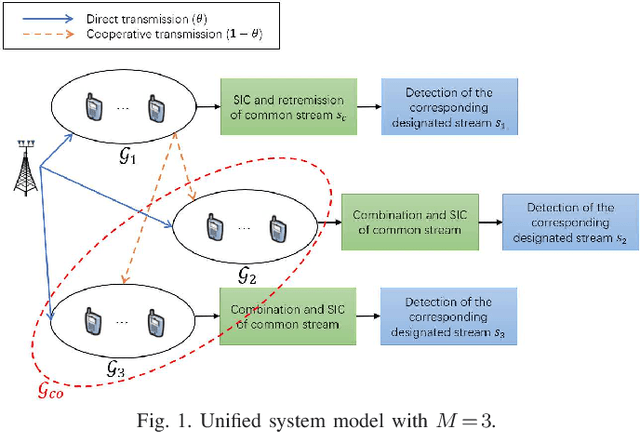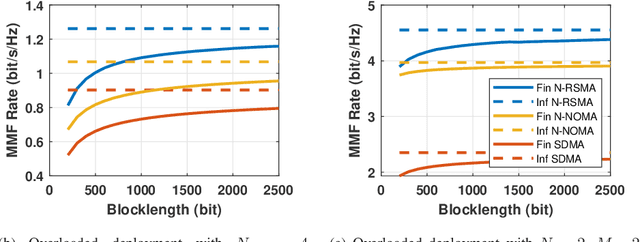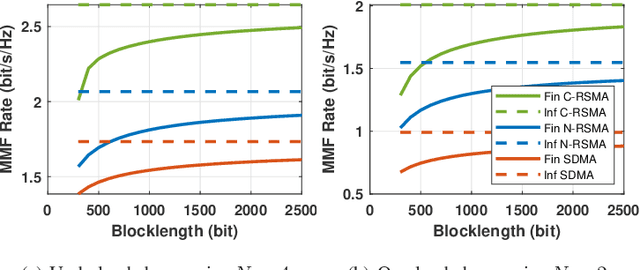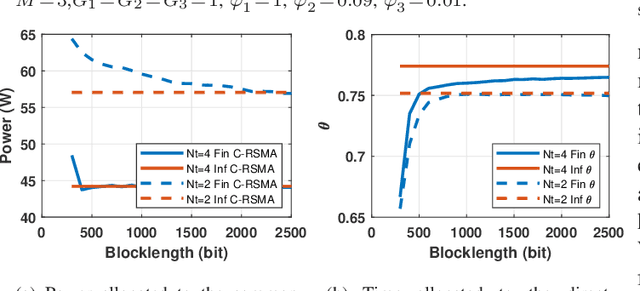Max-Min Fairness of Rate-Splitting Multiple Access with Finite Blocklength Communications
Paper and Code
Jul 12, 2022



Rate-Splitting Multiple Access (RSMA) has emerged as a flexible and powerful framework for wireless networks. In this paper, we investigate the user fairness of downlink multi-antenna RSMA in short-packet communications with/without cooperative (user-relaying) transmission. We design optimal time allocation and linear precoders that maximize the Max-Min Fairness (MMF) rate with Finite Blocklength (FBL) constraints. The relation between the MMF rate and blocklength of RSMA, as well as the impact of cooperative transmission are investigated for a wide range of network loads. Numerical results demonstrate that RSMA can achieve the same MMF rate as Non-Orthogonal Multiple Access (NOMA) and Space Division Multiple Access (SDMA) with smaller blocklengths (and therefore lower latency), especially in cooperative transmission deployment. Hence, we conclude that RSMA is a promising multiple access for guaranteeing user fairness in low-latency communications.
 Add to Chrome
Add to Chrome Add to Firefox
Add to Firefox Add to Edge
Add to Edge